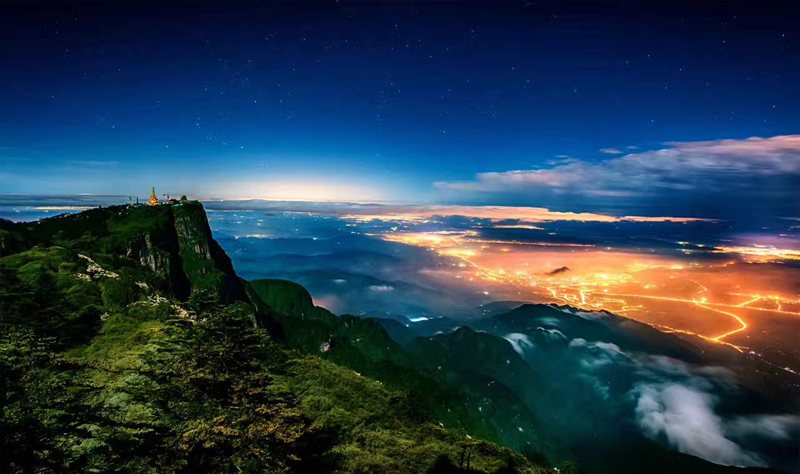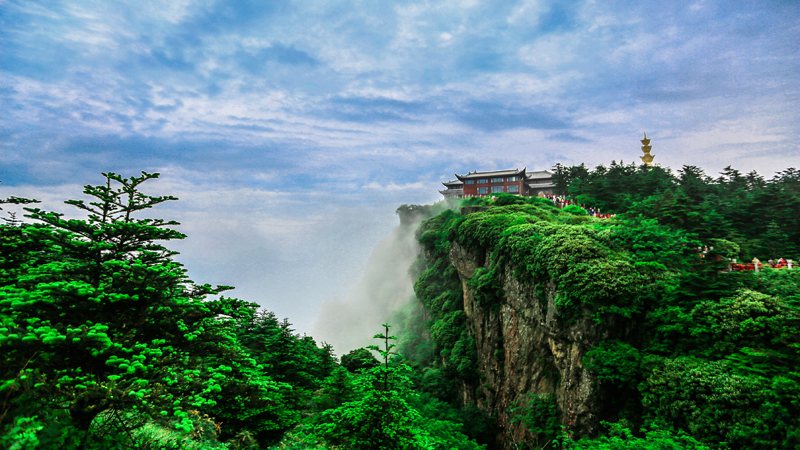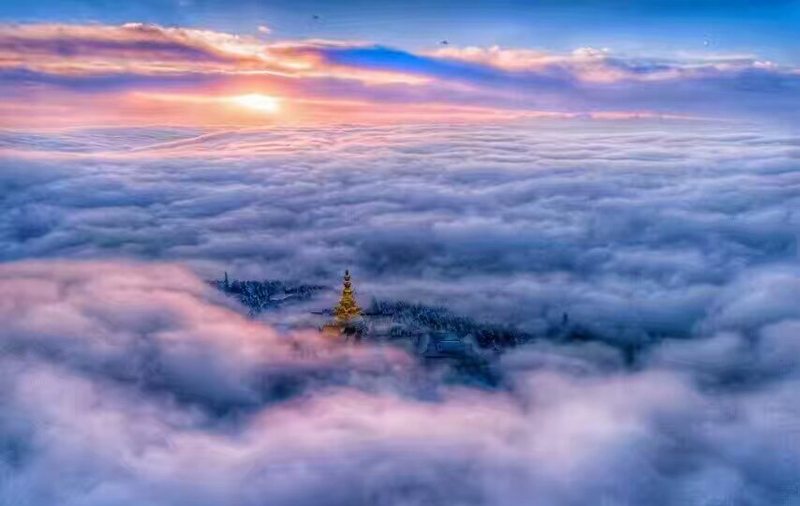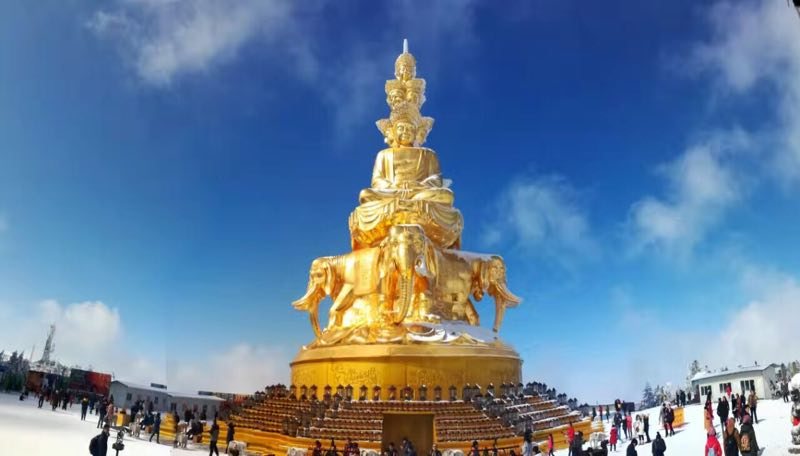Mount Emei is located near the mysterious latitude of 30 ° N and dominates the southwest of Sichuan Province. Since ancient times, it has been known as the “sage, the eldest son of Buddha, the leader of Emei, and the leader of the mountains”. Mount Emei has extremely rich natural heritage, known as the natural “kingdom of plants”, “animal paradise”, and “geological museum”. The cultural heritage is extremely profound, and it is a holy land of Chinese Buddhism, known as the “paradise of the Buddhist kingdom” and the dojo of Samantabhadra Bodhisattva. With its magnificent, beautiful, divine, peculiar, and spiritual natural landscapes and profound Buddhist culture, it has been listed on the UNESCO World Heritage List as an important tourist destination worldwide.

Mount Emei, standing on the southwestern edge of the Sichuan Basin, is the general term for the Da’e, Er’e, and San’e Mountains. During the Northern Wei Dynasty, Li Daoyuan recorded in his “Commentary on the Water Classic” that “after traveling thousands of miles to Chengdu, the autumn sky becomes clear and two mountains are seen facing each other like Emei, hence it is called Emei”. Due to the height and geographical location of Mount Emei, there are four seasons on a mountain from the foot of the mountain to the top, with different weather conditions within ten miles. Mount Emei caresses the stars, accumulates clouds and rain, mysterious beyond measure.

The mystery of Mount Emei comes from its long history and seemingly endless space. Today, some amazing data can help people interpret various details within it. Up to 1600 medicinal plants, reminiscent of mythical fairy grass; More than 3000 species of higher plants and over 2300 species of animals make up this spiritual world; The mountain peak rises abruptly from the gentle valley, with an altitude of over 3000 meters. Corresponding to these absolute numbers are the various natural wonders in this secret realm that are hard to distinguish between reality and illusion.

Mount Emei is a treasure trove of human culture, with a profound cultural heritage. It is a sacred site of Chinese Buddhism, known as the “paradise of the Buddhist kingdom” and the dojo of Bodhisattva Samantabhadra. It is the heavenly court rising from the basin and the undisputed leader of the mountains. In the “Miscellaneous Flowers Sutra – Buddhist Teachings”, it is said: “In the Kingdom of Zhen Dan, those from Emei are the leaders of the mountains. Li Bai, a great poet of the Tang Dynasty, had a timeless masterpiece of “There are many immortal mountains in Shu, and Emei is difficult to match”. It is also known as the “one mountain stands alone and many mountains are ashamed” and the “Five Sacred Mountains of Gaoling”.

